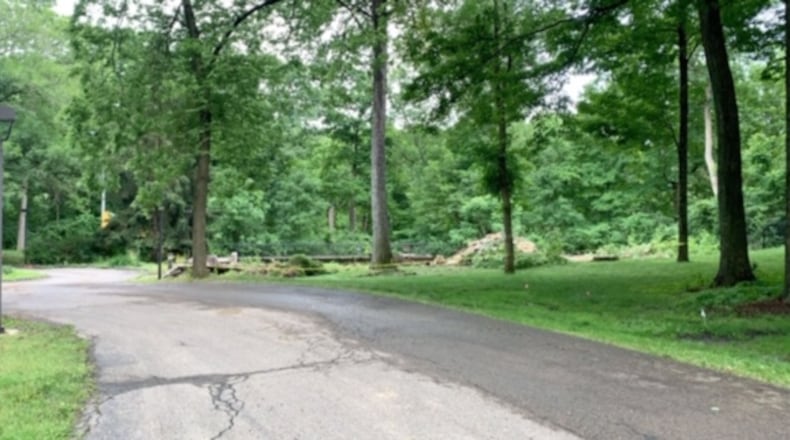The building that once stood at the end of the Circle Drive cul-de-sac on the Wright State campus — sometimes called Rockafield House — was demolished in recent days.
Former Wright State President Cheryl Schrader was the school’s first president never to have resided on campus. (Today, Sue Edwards is president of Wright State.)
MORE: Protecting NASIC will take 'constant vigilance,' advocates say
Former president David Hopkins — Schrader’s immediate predecessor in the office — lived in the university’s Rockafield House for about a year before he moved out.
Schrader received an annual housing stipend of $36,000, which was in line with what most other university presidents received, the Dayton Daily News reported in December 2017. It was something Wright State trustees considered a necessity to compete with other colleges, Doug Fecher, then-chairman of the WSU board of trustees, told the newspaper at the time.
MORE: Wright State budget woes: 'Snowball rolled downhill, and we were left to deal with that'
At that time, the presidents of Miami and Ohio State universities were the only two area public college leaders who still lived in houses owned by their institutions.
A spokesman for Wright State said Sunday the house suffered significant damage from surrounding trees a few years ago, when the building served as an alumni house. Since then, the building has remained unoccupied, the spokesman said.
The demolition happened over several days last week, the spokesman said.
Repairing and bringing the building up to code would have cost more than demolishing the structure, Walt Branson, WSU’s vice president for finance and operations and chief business officer, told the Dayton Daily News in late 2017.
“We don’t really plan on investing anything in it,” Branson said at that time. “It really isn’t cost effective to.”
The building was located in a pastoral forested setting, near a cemetery, but quite close close to the main campus. One could walk from Rockafield to the campus library in a few minutes.
About the Author


